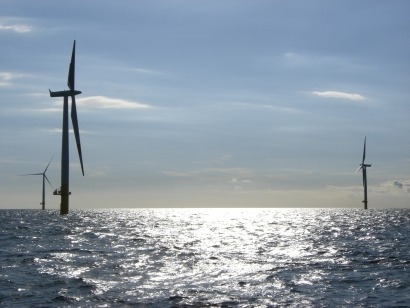
The two organisations have expressed their disappointment at the successful watering down of the 2030 EU energy and climate change package by the UK government. In response, they will continue to campaign for binding 2030 member state renewables targets to boost investor certainty and reduce costs.
The European Commission’s proposed 2030 energy and climate change framework, published today, shows a distinct lack of ambition according to the REA and STA. The framework sets a binding greenhouse gas target of 40 percent reduction against 1990 levels and sets a binding renewable energy target for the EU of “at least 27 percent”. However there are no specific targets for Member States.
The proposal states instead that “Attainment of the EU renewables target would be ensured by the new governance system based on national energy plans.” The UK Government has been pushing for a ‘technology-neutral’ approach, downplaying the role of renewables but the REA and STA support binding targets for Member States as a means of sending a clear signal to industry of sustained Government ambition for renewables. The current 2020 targets have been key to growth in renewables and particularly valuable in the face of negative rhetoric from British politicians and the damage to market confidence that such a dialogue has created over recent years.
The REA and STA now intend to continue pushing for binding Member State renewable energy targets with European partners and will also investigate the details of the new “governance system”. Both organisations expect an EU-wide renewables target, without binding targets for specific Member States, to have only a very limited impetus for expanding renewables in the UK.
“We’re about to find out what happens when theoretical economics meets the real world” said Dr Nina Skorupska, REA Chief Executive. “Theory suggests a ‘technology neutral’ approach is economically efficient. But experience shows that binding renewables targets do two things: First, they give a major long-term boost to investor confidence, helping accelerate market growth and technology cost reduction. Second, politics frequently trumps economics in the real world, and when politicians go wobbly on renewables, the targets help keep investment flowing.”
New binding targets for Member States would accelerate the cost reduction potential that is unique to renewables, Dr Skorupska added. This is because renewable generators are smaller and more numerous than fossil fuel giants and nuclear power companies. The combination of greater competition and mass production leads to major cost reductions, more jobs, community participation and greater resilience. Many renewables will be cheaper than nuclear well before 2030 and will be cost-competitive with fossil fuels, thereby no longer requiring subsidy, but this will happen sooner with binding targets than without.
The government’s opposition to binding 2030 renewables targets coincides with its enthusiastic promotion of nuclear and shale gas. It also follows a series of damaging comments from certain ministers with regard to renewables. Dr Skorupska said that renewables have several of the same benefits as nuclear and shale gas, such as reducing our exposure to international energy markets, creating jobs in the UK and increasing the tax revenue for the treasury.
“It’s shocking that the UK Government, one of the poorest performers on renewables in Europe, sought to squash such a valuable target” said STA Head of External Affairs Leonie Greene. “Let’s be clear, a target is not the same as public support. Solar is likely to need no public support in the next decade, but a target will provide the whole renewables industry with the confidence to invest for strong expansion going forwards. Now under this pan-EU target approach, we are likely to see a scenario where countries like Germany that take a long term perspective continue to strongly back their renewables industry into the next decade, while we fall even further behind.”
For additional information:

